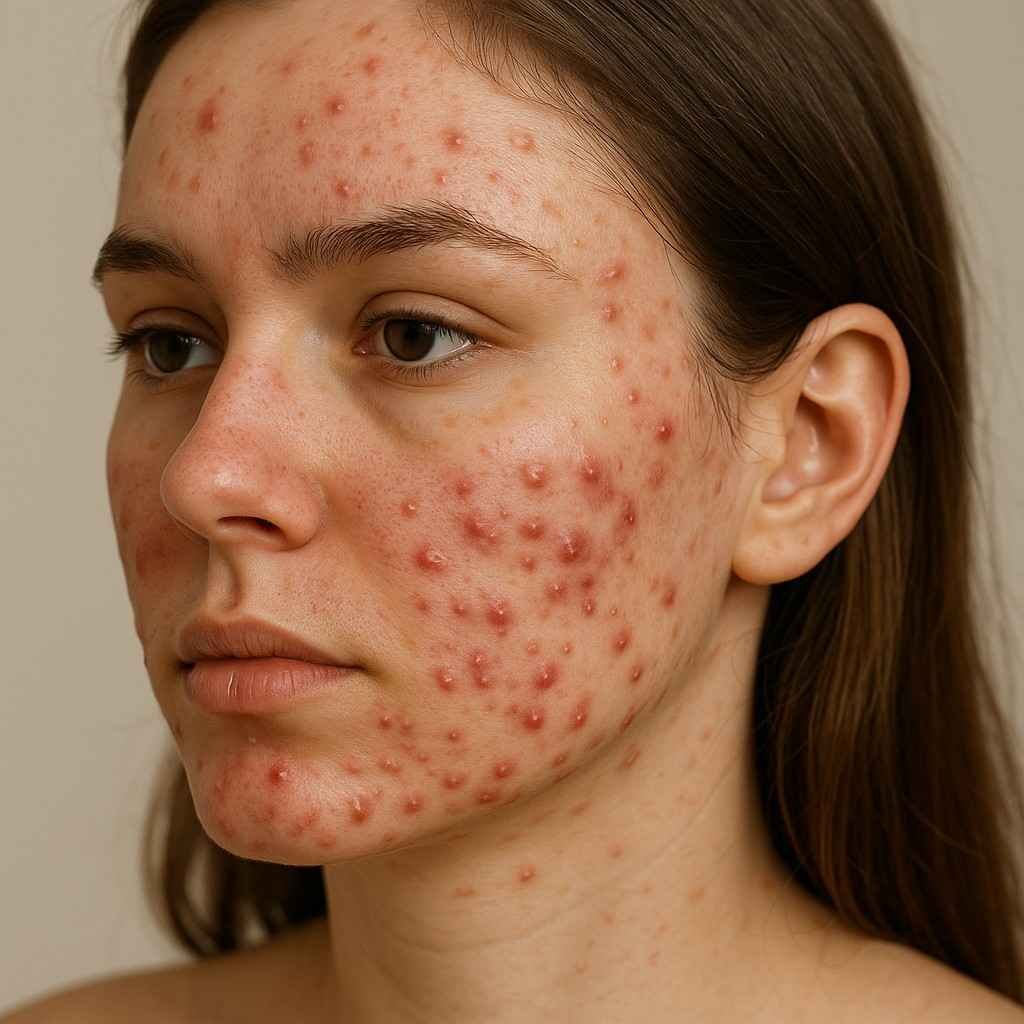
Blog
Understanding Acne: Causes, Types, and Proven Solutions

Acne is one of the most common yet complex skin conditions, affecting people of all ages. More than just a cosmetic concern, persistent acne can leave lasting physical scars and deeply impact emotional well-being. From mild blackheads to painful cysts, its severity varies widely—but with the right knowledge and approach, acne can be effectively controlled.
What Causes Acne?
Acne occurs when normal skin processes are disrupted, leading to clogged pores and inflammation. Several key factors contribute:
Excess Sebum Production: Overactive oil glands produce too much sebum, which can block pores.
Clogged Hair Follicles: Dead skin cells combine with excess oil to form plugs known as comedones.
Bacterial Growth: Cutibacterium acnes (formerly Propionibacterium acnes) thrives in blocked pores, causing infection and inflammation.
Inflammation: The body’s immune response leads to redness, swelling, and tenderness around clogged pores.
Common Acne Triggers
In addition to biological factors, certain lifestyle and environmental triggers can worsen acne:
-
Hormonal Changes: Puberty, menstruation, pregnancy, or conditions like PCOS can increase oil production.
-
Genetics: A family history of acne can make you more prone to breakouts.
-
Stress: Stress hormones like cortisol can overstimulate oil glands.
-
Diet: Diets high in sugar or dairy may contribute to flare-ups in some individuals.
-
Skincare Products: Heavy, oily, or fragranced products can clog pores and irritate the skin.
Types of Acne
Understanding what type of acne you have is essential for choosing the right treatment:
-
Comedonal Acne: Non-inflammatory blackheads and whiteheads caused by clogged pores.
-
Inflammatory Acne: Red, swollen pimples due to bacteria and an immune response.
-
Cystic Acne: Large, painful lumps under the skin that often require professional treatment.
The Emotional Impact
Acne affects more than just your complexion—it can significantly impact self-esteem and mental health. Many people experience anxiety, depression, or social withdrawal. An effective treatment plan should address both the physical symptoms and the emotional impact.
Effective Acne Treatments
Treatment options vary based on acne severity and skin type.
Over-the-Counter (OTC) Treatments:
-
Benzoyl Peroxide: Kills bacteria and reduces inflammation.
-
Salicylic Acid: Exfoliates and clears blocked pores.
-
Alpha Hydroxy Acids (AHAs): Help shed dead skin and improve texture.
Prescription Medications:
-
Topical Retinoids (e.g., Retino-A): Increase cell turnover and prevent clogged pores.
-
Antibiotics: Topical or oral antibiotics reduce bacteria and inflammation.
-
Oral Isotretinoin: A powerful option for severe cystic acne, prescribed and monitored by a dermatologist.
Daily Skincare Tips for Acne-Prone Skin
Consistent daily care helps prevent breakouts:
-
Use a gentle, fragrance-free cleanser twice daily.
-
Apply oil-free, non-comedogenic moisturizers to keep skin balanced.
-
Wear sunscreen daily, especially when using acne treatments.
-
Avoid picking or squeezing pimples to reduce the risk of scarring.
-
Stick with your routine—results take time and consistency.
Lifestyle Habits for Clearer Skin
Healthy habits can support clearer skin from the inside out:
-
Balanced Diet: Focus on whole, nutrient-rich foods and reduce sugar and processed foods.
-
Manage Stress: Try yoga, meditation, or relaxing hobbies.
-
Stay Hydrated: Drink plenty of water to help flush out toxins.
-
Prioritize Sleep: Aim for 7–9 hours of quality rest for skin repair and renewal.
Take Charge of Your Skin
Acne may be persistent, but it is manageable. Whether you use gentle OTC products or prescription treatments like retinoids or isotretinoin, success comes with consistency, patience, and a plan that suits your unique skin.
A skincare professional can help you develop a treatment plan tailored to your needs. With the right care, you can calm breakouts, heal your skin, and feel confident again—one step at a time.
